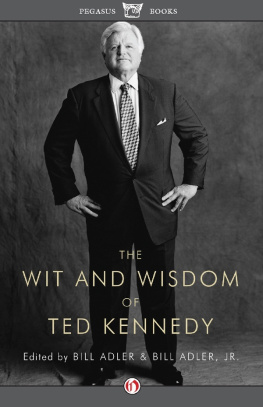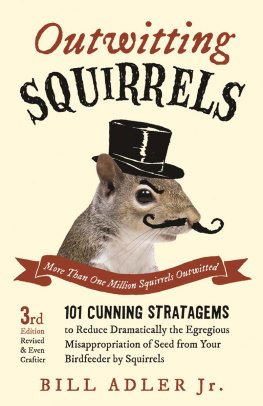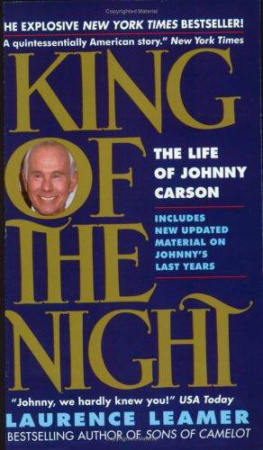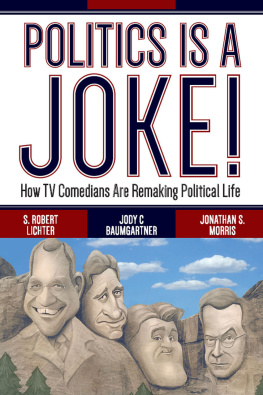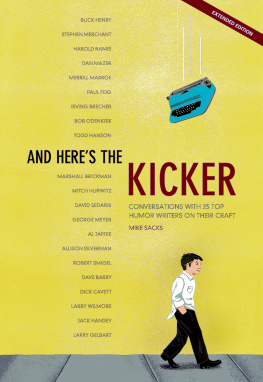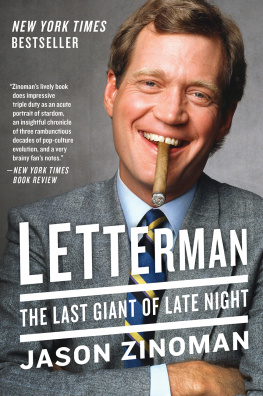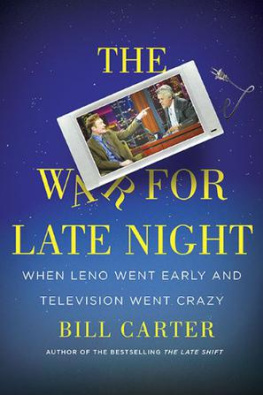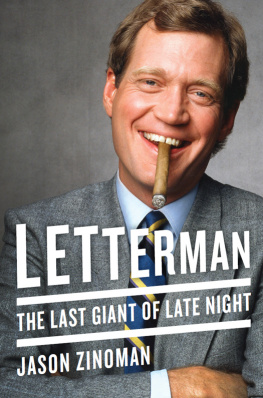Bill Adler - The Leno Wit: His Life and Humor
Here you can read online Bill Adler - The Leno Wit: His Life and Humor full text of the book (entire story) in english for free. Download pdf and epub, get meaning, cover and reviews about this ebook. year: 2011, publisher: HarperCollins, genre: Detective and thriller. Description of the work, (preface) as well as reviews are available. Best literature library LitArk.com created for fans of good reading and offers a wide selection of genres:
Romance novel
Science fiction
Adventure
Detective
Science
History
Home and family
Prose
Art
Politics
Computer
Non-fiction
Religion
Business
Children
Humor
Choose a favorite category and find really read worthwhile books. Enjoy immersion in the world of imagination, feel the emotions of the characters or learn something new for yourself, make an fascinating discovery.

- Book:The Leno Wit: His Life and Humor
- Author:
- Publisher:HarperCollins
- Genre:
- Year:2011
- Rating:5 / 5
- Favourites:Add to favourites
- Your mark:
- 100
- 1
- 2
- 3
- 4
- 5
The Leno Wit: His Life and Humor: summary, description and annotation
We offer to read an annotation, description, summary or preface (depends on what the author of the book "The Leno Wit: His Life and Humor" wrote himself). If you haven't found the necessary information about the book — write in the comments, we will try to find it.
Discusses Jay Lenos unique sense of humor, from his days as a New England schoolboy to his role as the top-rated late-night TV talk-show host, and examines some of the challenges and conflicts he faced to make it to where he is today.
The Leno Wit: His Life and Humor — read online for free the complete book (whole text) full work
Below is the text of the book, divided by pages. System saving the place of the last page read, allows you to conveniently read the book "The Leno Wit: His Life and Humor" online for free, without having to search again every time where you left off. Put a bookmark, and you can go to the page where you finished reading at any time.
Font size:
Interval:
Bookmark:
His Life and Humor
BY JAY WALKER

G entle No More?
G one are the garish metallic suits, the short black hair, and the one-dimensional stand-up comic of the early nineties.
These days Jay Leno is a snappy dresser with a pricey, tailored wardrobe that doesnt glitter, with a full head of grizzled hair, and with a comedy repertoire that goes well beyond his proven expertise of being able to perform a hilarious stand-up monologue off the top of his head.
And all for the better, especially his expanding funny-man repertoire, which now includes playing parts in skits la Johnny Carson, though Lenos characters are pure Leno and bear little resemblance to such Carson skit personas as Carnac and Art Fern.
Leno has his own stock of funny characters, among them Iron Jay, whose technologically enhanced head, otherwise known in the trade as a morphed head, your basic fathead, a head that looks like nothing so much as a sumo wrestler, fills the TV screen and cracks wise. The giant head is so grotesque that its funny.
To be sure, Leno has a large head to begin with, what with that lantern jaw that dominates his face, more or less caricaturing it by making it even bigger. And that strikes the funny bone in his legions of fans.
This was not always the case.
Early critics, noting Lenos prognathous jaw and rigid walk, likened him to Frankensteins monster, who despite Jays squeaky Mickey Mouse voice, struck fear in the hearts of his audience.
His outrageous looks were almost enough to deep-six his career in show biz even before he could get started. One Hollywood casting director, who shall remain nameless to protect his genetically inherited idiocy, had the effrontery to claim Lenos aspect frightened little children.
Lenos personality is and always has been anything but frightening. He is still the same Jay he was before he hit the big time when he assumed the helm of The Tonight Show. Some things never change, and for this his admirers are grateful.
Regarding those boxy metallic suits Leno wore when he was less than a clothes horse, he once explained that he had bought a ten years supply from a door-to-door salesman. Maybe that salesman no longer makes house calls. In any case, those boxy numbers are definitely a thing of the past.
Standing six feet tall and weighing in at 180 pounds, Leno is an imposing presence. His kindly aquamarine eyes and ever-smiling mouth convey geniality, convincing those watching him that he is, if anything, an amiable hulk who wouldnt hurt a fly. In short, what you see is what you get.
Its David Lettermans considered opinion that there is only one difference between Leno onstage and Leno off: Jay wears less makeup onstage.
That was Leno before he got the brass ringi.e., The Tonight Show. He was fair game, and everyone was always criticizing him, with his wardrobe proving to be one of their favorite targets.
Not only his suits but his ties came in for derision. Said comedian Dennis Miller during his stint on Saturday Night Live, Those ties look like they were made in summer camp, like fabric ashtrays hes wearing around his neck.
Letterman again: I dont get his clothes. I just dont get it. I dont get the pushed-up sleeves, the luminescent ties.
His basic Fuller Brush-salesman attire simply never caught on for Leno. His friends made Lenos wardrobe sound like he was the guest of honor at a convention of Ringling Brothers clowns, with the ties that squirt water or ink and with the baggy outfits.
It wasnt only fellow comedians who poked fun at Lenos garb. Get this dig by People correspondent Patti Corcoran: Jay Leno has noabsolutely notaste in clothes. Its not a minority opinion. Just ask his friends.
Even Lenos mother had a problem with his wardrobe. She often kidded him: Its no wonder no one ever recognizes you on the streetyoure always a mess!
Associated Presss Dana Kennedy wrote that Lenos mother said of him: He cant wait to get the tuxedos off! He likes to go off and fool around with his motorcycles.
At that time in his life, before his big break in television, Leno did not give a hang about the clothes he wore. All he cared about were his jokes. The only thing he knew about clothes was that you really shouldnt show your genitals in public (this according to a Playboy article about him).
When he was first trying out a career in comedy, Leno simply did not do impressions or play characters in skits. Playing a character was a form of typecasting as far as he was concerned.
He pointed out, Youre stuck with the thing. If youre the Wacky Guy from Space, you might get on Carson one or two times. But the third time, youre just a guy in a space suit telling jokes.
That was the reason he liked Laurel and Hardy so much as a kidbecause no matter where they were, they were always Laurel and Hardy. I mean, if you put them in the Renaissance or had them signing the Magna Carta, they were still Stan and Ollie. Their personalities were ingrained, and that made me laugh.
Leno always liked comics that looked like ordinary people, such as Jack Benny, Alan King, Johnny Carson, and Bob Newhart. He never went in for the put-on-a-dress school of comedy.
To top it all off, its a much simpler matter to play just one characterto wit, yourself.
Leno is an honest product of American humor. Like American humor, his jokes fall into separate and distinct categories. One of these categories is derived from the old-fashioned tall tale as practiced in the West by the great Mark Twain; the other is the one-liner, as practiced by such comic luminaries as Henny Youngman: Take my wifeplease!
When Leno started, he had no idea he would ever be constructing jokes, not only at a fast pace but every day of his life. Instead, he studied himself, and shaped his humorous style on the traditional anecdote, the tall tale in miniature. The one-liners were a much later product.
Even during the period when Leno appeared as a guest of Johnny Carson or David Letterman, he mined the anecdotal lode without shame. He had become a natural storyteller, probably having inherited the traitor learned itfrom his father, who was a professional salesman and later insurance manager.
Im always me, he said of his early career as a stand-up comic using no props at all. In 1992 he reminisced to Oprah Winfrey about his early days in show business before he got his start. In the following, note the absence of props, costumes, or other distractions in the carefully crafted anecdote, featuring nothing but Leno and the spoken word.
I went to this strip joint, you know, and I went backstage, and I went to the guys office, and theres a stripper with him, just as you would imagine.
He goes, Yeah?
I say, Im a comedian.
Comedian?
I say, And I want to work your club.
You in the union?
I say, No, I didnt know.
Well, you got to join the union you want to be a comedian. You cant work the union club, you cant work here unless youre in the union, you know.
I say, Oh. Well, how do I get in the union?
And he goes, Here, go see my buddy over there. And he writes this address. He says, Ill call him up, tell him youre coming.
So I go across town, this guys place, and knock on the door.
Come in.
Im Jay Leno, the guy
Oh, yeah, yeah. Youre a comedian. All right. How long you been a comedian?
I say, Oh, about a year.
He says, A year? He goes, You got to join the union within six months. You could be in violation. I could fine you! He starts yelling. Im justIm like twenty years old. Im scared, you know?
Font size:
Interval:
Bookmark:
Similar books «The Leno Wit: His Life and Humor»
Look at similar books to The Leno Wit: His Life and Humor. We have selected literature similar in name and meaning in the hope of providing readers with more options to find new, interesting, not yet read works.
Discussion, reviews of the book The Leno Wit: His Life and Humor and just readers' own opinions. Leave your comments, write what you think about the work, its meaning or the main characters. Specify what exactly you liked and what you didn't like, and why you think so.

